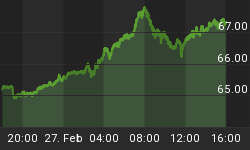On November 8, 2001 Robert Rubin called senior Treasury Department official Peter Fisher and asked him if he could tell the bond rating agencies to hold off on downgrading Enron. Mr. Rubin, who served as Treasury Secretary from 1995 to 1999, was clearly using his high-up contact(s) in an attempt to influence the supposedly non-biased rating agencies, and he was doing so because he worked for Citigroup, a large Enron creditor. When Fisher declined to go along with the scheme Rubin agreed that is was probably not a good idea after all (what else could he do?). The media barely covered the story, no official inquiry was made, and Robert Rubin didn't go to jail.
Given that Robert Rubin is going to be the new Chairman of Citigroup, you would think that shareholders would be up in arms. After all, how can someone with Mr. Rubin's suspicious track record be trusted? But alas, Robert Rubin is a member of the fabled "Committee to Save the World". If he can not bail Citigroup out of its current mess who can?
The reality is that Rubin, while regarded as an extremely influential figure, is not a miracle worker. The conditions that allowed Greenspan and Rubin to run amuck with their bailouts in the 1990s are no longer present today. It is also worth remembering that despite his efforts Rubin failed to stop the Enron implosion from happening, and he also underestimated the turmoil currently surrounding Citigroup and others.
Can The Puzzle Ever Be Solved?
The real story isn't that Rubin is a hero or villain, but that following the collapse of Enron FASB and the SEC failed to enact simple and tough accounting standards that forced companies to keep any and all financial exposures on their balance sheets. To be sure, the off balance sheet dealings that helped Enron conceal its insolvency are being reincarnated today with untold SIV exposures because the SEC and FASB failed.
Incidentally, FASB and the SEC had a near impossible job to do: there were hundreds of Rubin-like figures lobbying and making secretive phone-calls to water down the post-Enron accounting standards investors are forced to cope with today. Why not make these calls when the punishment for getting caught in the act is to one day become Chairman of Citigroup?
In short, it is the calls that Rubin and others make, most of which we never find out about, that make it impossible for regulator and investor interests to perfectly align.
















